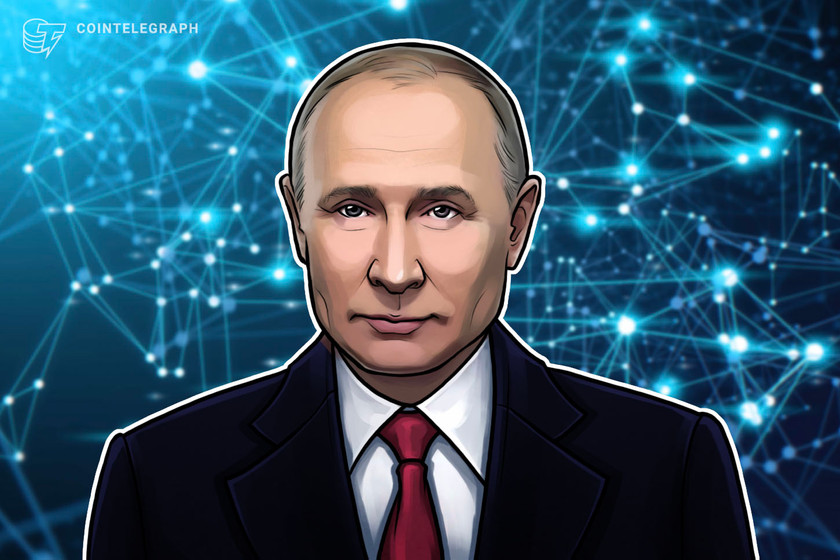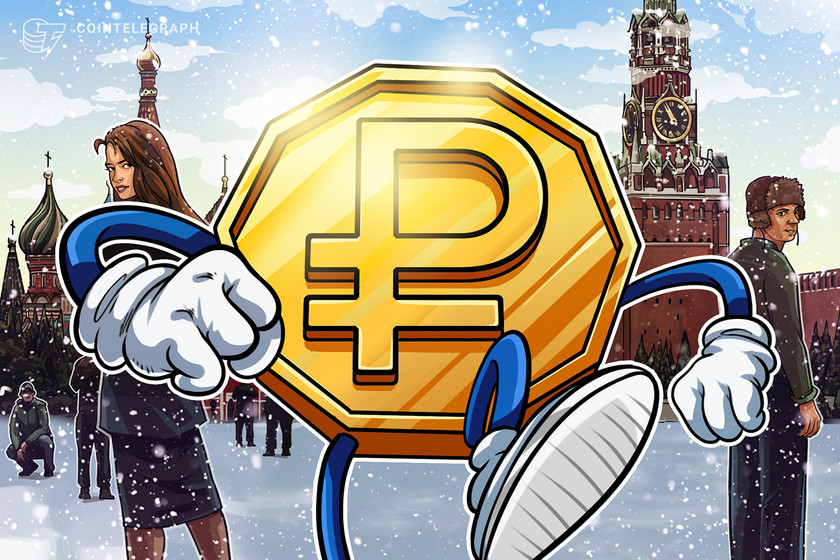Russian crypto advocates urge Putin to stop regulatory hostility


Russia’s existing regulatory stance on the cryptocurrency industry would potentially lead the country to “direct financial losses,” the RACIB argued.
As Russia continues to delay adopting cryptocurrency regulations, local advocates have appealed to Russian President Vladimir Putin to change the government’s approach to regulating the market.
The Russian Association of Crypto Industry and Blockchain (RACIB) — a major group of crypto and blockchain enthusiasts in Russia — issued an open letter to Putin on March 6, urging the president to address the risks of ignoring the global development of the crypto industry.
In the letter, the RACIB argued that Russia has been too slow to implement experimental legal regimes targeting crypto adoption despite enforcing its first crypto law, “On Digital Financial Assets,” in 2021.
In November 2022, lawmakers in Russia introduced a series of legal amendments to the crypto law, proposing to launch a “national cryptocurrency exchange.” According to the RACIB, some of those amendments would significantly complicate the implementation of digital financial technologies in Russia as they introduce criminal sanctions for local blockchain developers.
The proposed amendments would give Russian enforcement authorities a “sea of choice” to pressure the local crypto community, the RACIB’s executive director Alexander Brazhnikov told Cointelegraph.
“It will not be easy for companies in the digital asset industry to prove that they are doing everything within the framework of the Russian legislation,” Brazhnikov stated.
The RACIB has ultimately called for Putin to put an end to Russia’s hostile regulatory stance on crypto, as it prevents local businesses from fully using the potential of crypto and would potentially lead the country to “direct financial losses.” The RACIB stated:
“The existing state policy around the regulation of digital financial assets creates serious risks for the Russian economy to lag behind not only unfriendly, but also friendly countries due to delaying the introduction of new financial technologies.”
According to the RACIB, one of the biggest risks behind ignoring the benefits of the crypto industry is the relocation of local talent to advanced jurisdictions, including Eurasian Economic Union (EAEU) countries like Kazakhstan and Armenia.
To help Russia change its tough regulation stance on crypto, the RACIB has asked Putin to build a working group, including representatives of the digital asset community, to collaborate with the government on building the state’s crypto regulation policy. The group has specifically expressed interest in developing and applying cross-border payment systems in Russia, EAEU jurisdictions, as well as other countries like Brazil, India, China and South Africa.
Related: Russia to roll out CBDC pilot with real consumers in April
In 2021, RACIB’s Yury Pripachkin argued that Russia was doing “absolutely nothing” to regulate the local cryptocurrency market.
The news comes soon after the Russian central bank reiterated its uncompromised stance on crypto, with Elizaveta Danilova, head of Bank of Russia’s financial stability department, arguing that legalization of crypto investments threatens the welfare of Russian citizens. At the same time, the Bank of Russia sees no problem in legalizing crypto mining and allowing crypto use in cross-border transactions.









